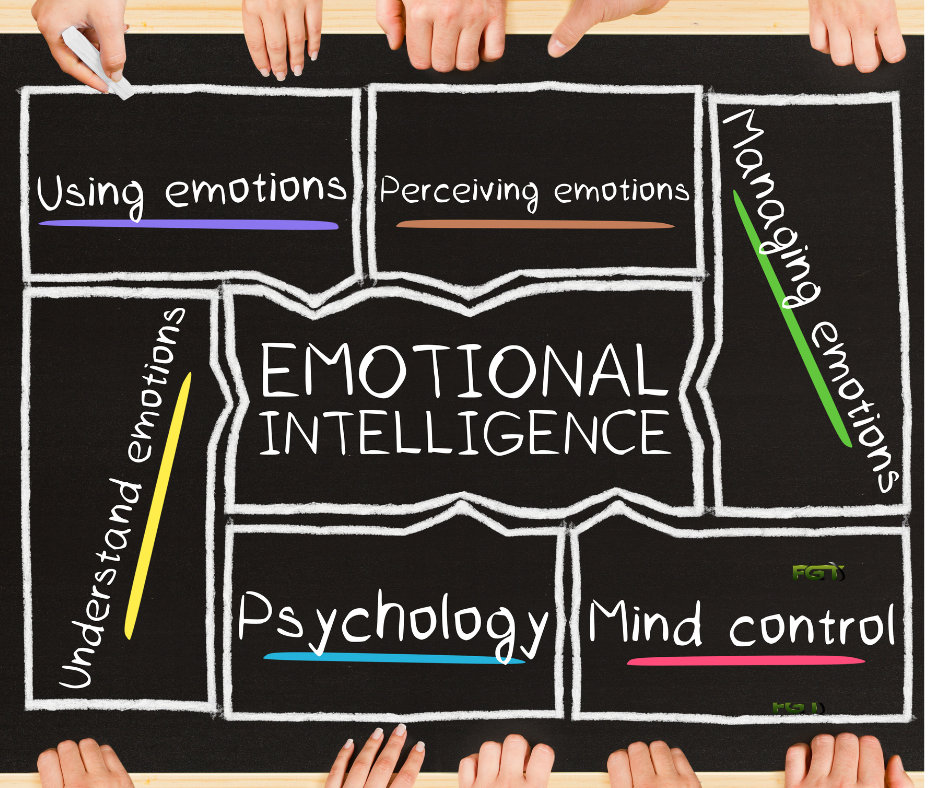Nurturing Emotional Intelligence as a Leader
We have discussed the high value of Emotional Intelligence (EI) for leaders (or anyone!), the need for self-management or regulation, and how EI affects our social awareness. Now, let’s look at how to nurture EI and summarize the overall subject.
Emotional Intelligence is Key For Coaching and Mentoring
EI includes the ability to influence, coach, and mentor others while navigating social complexities with tact and diplomacy. Mastering these skills enhances interpersonal interactions and fosters an environment of trust, collaboration, and effective communication.
At its core, relationship management is about understanding and managing interactions with others to achieve positive outcomes.
Leaders need a keen awareness of their emotions and the ability to empathize with others’ feelings. By honing these skills, individuals can better navigate social networks, resolve conflicts, and build stronger, more meaningful connections.
Strong relationship management skills in the workplace contribute to a healthier organizational culture. Leaders who excel in this area are adept at inspiring and motivating their teams, which increases morale and productivity.
They can effectively manage team dynamics, mediate disputes, and create a collaborative atmosphere where diverse perspectives are valued and leveraged.
Team performance will improve, as will employee satisfaction and retention.
Emotional Intelligence in Your Personal Life
On a personal level, relationship management is equally vital.
It helps individuals build and maintain healthy relationships essential for emotional well-being.
Effective communication, active listening, and empathy are key components that enable individuals to connect with others on a deeper level, fostering mutual respect and understanding.
These skills are particularly important in family dynamics, friendships, and intimate relationships, where positive interactions and conflict resolution strengthen emotional bonds. Managing relationships across diverse cultural contexts is becoming essential in our increasingly globalized world.
Cultural sensitivity and adaptability are crucial for building trust and rapport in international settings, whether in business or personal interactions.
EI is at the Root of Personal Growth
Emotional intelligence plays a pivotal role in effective leadership, and the foundation of any leader’s emotional intelligence lies in self-awareness.
Leaders should reflect on their emotions, triggers, and behavioral patterns. Understanding one’s strengths, weaknesses, and areas for growth will allow one to regulate emotions better and respond thoughtfully in challenging situations.
So, how do we continue to develop EI in everyday life?
Through Empathy
Empathy is the ability to understand and share the feelings of others. As a leader, cultivating empathy will allow you to connect more profoundly with your team members, fostering trust and collaboration.
Active listening, putting oneself in others’ shoes, and acknowledging diverse perspectives are essential to empathetic leadership. You can demonstrate empathy by providing support, validating emotions, and creating a safe space for open communication within the team.
In Daily Communication
Clear and empathetic communication is fundamental to fostering emotional intelligence in leaders. Encouraging open dialogue, expressing thoughts and feelings openly, and providing constructive feedback are vital to effective and meaningful communication.
As a leader, you should communicate authentically, transparently, and respectfully. In doing so, you build trust and rapport with your team. Active listening, asking clarifying questions, and being receptive to feedback are vital skills that enhance communication effectiveness.
Resolving Conflicts Quickly
Conflict is inevitable in any workplace, but how we manage it can significantly impact team dynamics and productivity. Leaders with high emotional intelligence approach conflict calmly and composedly, seeking mutually beneficial resolutions.
Adopting a collaborative problem-solving approach, facilitating constructive dialogue, and mediating conflicts impartially are essential skills for effective conflict resolution. By addressing conflicts proactively and fostering a culture of respect and understanding, leaders can mitigate tensions and promote harmony within the team.
Resilience in Tough Times
Resilience is the ability to bounce back from setbacks and adversity. In today’s fast-paced work environment, leaders must possess resilience to navigate challenges and inspire resilience in their teams.
Cultivating resilience involves developing coping strategies, maintaining a positive outlook, and adapting to change with flexibility and agility. Leaders can lead by example by demonstrating resilience in the face of adversity, acknowledging failures as learning opportunities, and offering support to team members during challenging times.
Managing Our Behaviors
Self-regulation is managing and controlling one’s emotions, impulses, and reactions. As a leader, your strong self-regulation skills will demonstrate emotional stability, composure, and self-discipline in your actions.
Mindfulness, stress management techniques, and cognitive reframing can help you regulate your emotions effectively. You can inspire confidence and trust in their leadership by remaining calm under pressure, exercising patience, and making well-informed decisions.
Always Growing and Learning
Emotional intelligence is not a static trait but a skill that can be developed and refined over time. Leaders should embrace a growth mindset and prioritize continuous learning and self-improvement.
Engaging in professional development opportunities, seeking feedback from peers and mentors, and reflecting on past experiences can facilitate ongoing growth in emotional intelligence. By committing to personal development and pursuing growth opportunities, leaders can enhance their leadership effectiveness and positively impact their teams.
I hope that you have found something useful in our journey into the core elements of Emotional Intelligence.
I never want to stop being curious about who I am and how I show up in relationships with others.
What to Watch






